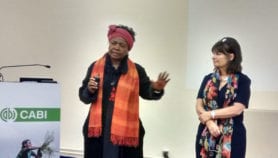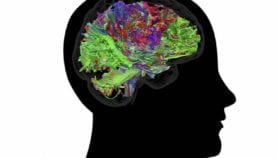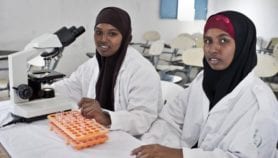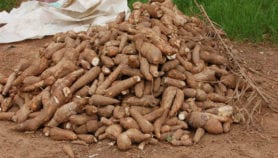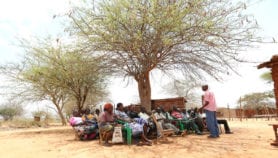By: Jane Lubchenco
Send to a friend
The details you provide on this page will not be used to send unsolicited email, and will not be sold to a 3rd party. See privacy policy.
It is no exaggeration to say that the transition to sustainability is the most important challenge of our times. For if we cannot work out how to do that, nothing else will matter. And science has a key role to play in this transition.
This represents a new role for science in society. Until now, the usual reason given by governments for supporting science is that it can improve human lives, a role that covers not only protecting human health but also areas such as improving communication, raising levels of education and satisfying our intellectual curiosity.
In addition, science has performed a range of social and political functions, such as boosting national defence, enhancing national prestige — the race to get to the moon is an example of that — and, more recently, enhancing economic growth.
But science is now emerging in a new role that is equally as important as those it has played up to now. That is the way that it can increase our understanding of the national and the social worlds, and of the way that these two worlds interact.
In this role, science can help to map out the choices that society faces, show the consequences of these choices, and provide solutions to the problems that may arise.
This does not mean that scientists should try to dictate policy. Rather, science should ‘inform’ policy by increasing our understanding of the impacts and consequences of human behaviour, and, based on that understanding, showing that the choices we face are societal choices, not scientific or technical ones.
If we stand back to look at the current state of the Earth, it is possible to argue that we have made very little progress since the Earth Summit in Rio in 1992. One way of recognising this is through the changes that are taking place on a global scale as a result of human activity.
Take, for example, the transformation of the land. Humans have always transformed the land; indeed more than half of the land surface of the Earth has been transformed by human activity in one way or another. But both the rate at which we are transforming the landscape, and the amount that is transformed, are currently increasing at a rapid rate. In doing so, we are damaging ecological systems that provide us with essential services, such as clean air and water.
The second global-scale transformation is the way that we have increased carbon emissions by 30 per cent since the beginning of the Industrial Revolution. We know that the planet is now warming as a result of human activities, and in some regions the changes are already quite dramatic.
The third change is the way that anthropogenic activities have doubled the annual amount of nitrogen that is fixed. As a result, there are now for example about 50 ‘dead zones’ around the world, such as the mouths of large rivers where run-off from agricultural areas has resulted in harmful algal blooms that are increasing in frequency, intensity and duration.
The fourth global-scale change relates to the use of water. Humans currently use more than half the amount of the world’s available surface water, and agriculture alone accounts for more than 70 per cent of this. The challenge of providing enough water to meet human needs is substantial.
Fifthly, there is the loss of biodiversity. It is no exaggeration to say that we have entered the sixth mass extinction event. Unlike such events in the past, however, this one has been driven by human activity, which is creating a loss of biodiversity through habitat degradations and overpopulation.
Finally, there is the fact that two-thirds of the world’s fisheries are either fully exploited, overexploited or depleted. This has happened in a relatively short period of time; 40 years ago, in contrast, the figure was only five per cent. And technical responses such as aquaculture will not help unless they themselves become more environmentally sensitive than they are at present.
We have made very poor progress since Rio in making a dent in any of these changes. Indeed, we should not take a lot of pride in what has happened over the past decade; the changes listed above are accelerating, disrupting the ecological systems that provide the support systems for all living organisms.
But the picture is not all gloomy. While the problems we face may be increasing in intensity, it is also true to say that we have learned a tremendous amount since Rio.
Firstly, there is an increasing awareness, both in the public and private sectors, of the seriousness of the environmental challenges that we face.
Secondly, we have made progress in understanding that we need to do a better job of integrating the natural sciences of biology and physics with a socio-economic approach; we have learned to look at the Earth as a single system.
We are increasingly recognising the importance of both traditional knowledge and local knowledge in providing solutions to the issues that we face, and accepting that there are no ‘one size fits all’ solutions to managing the environment in a sustainable fashion.
Another important change has been a growing awareness of the moral and ethical aspects of sustainability. Finally, we have made progress on the engagement front, as an increasing number of scientists have come to realise that they have a responsibility not only to carry out science but also to communicate it to the general public.
In addition to all this, I believe that we are witnessing the emergence of a new field of science, namely what is called ‘sustainability science’. This is a science that is dedicated to bringing together the natural, social and economic sciences in the interests of promoting sustainable patterns of development.
The message in all this for the World Summit on Sustainable Development is that we need to recognise that science is a key player in this process of the transition to sustainability. As I indicated above, we are beginning to learn how to do this, and scientists are becoming more aware and more committed partners in the process of transition. But we are not yet making sufficient progress in achieving our goals.
© SciDev.Net 2002
Jane Lubchenco is professor of zoology at Oregon State University, and president-elect of the International Council for Science (ICSU). This article is based on a presentation to ‘State of the Planet 2002: Science and Sustainability’, held at the Earth Institute, Columbia University, New York, on 13 May 2002
http://www.earth.columbia.edu/sop2002/sopagenda.html.
More on Networks

Script media release
Journalists offered ‘big break’ mentoring opportunity from Radio Nigeria
03/04/19





